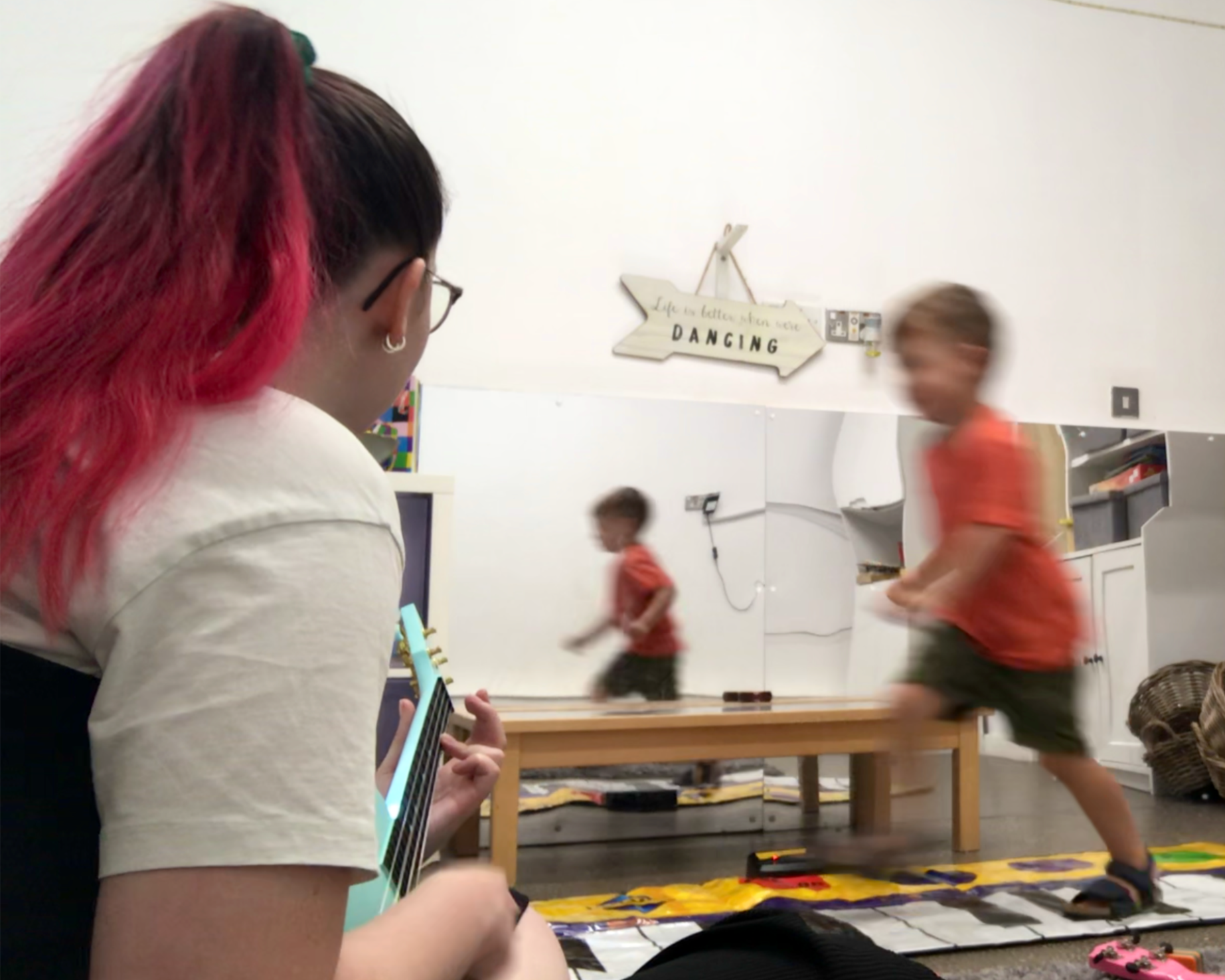Music Therapy is a clinical and evidence-based therapeutic approach that utilises music to address various physical, emotional, cognitive, and social needs of individuals. It is delivered by a HCPC registered Music Therapist who uses musical interventions to support clients and work towards therapeutic goals.
Sessions may involve music making with instruments, improvisation, listening and discussing music, therapeutic song writing, movement to music and much more…
Individual Music Therapy sessions adopt a person centred approach.
By tailoring sessions to the individual, the therapist can provide interventions that work towards therapeutic goals that promote emotional, cognitive and social wellbeing.
Group Music Therapy encourages turn taking, communication and building social skills. Focusing on the interactive and collaborative aspects of music making which allows participants to build relationships with one another whilst exploring their own feelings.

British Association For Music Therapy
Music Therapy can be beneficial to a wide range of individuals across the life span:
New borns
Children and young people (in mainstream or SEN education).
People experiencing issues with their mental health such as depression and anxiety.
People experiencing bereavement.
Learning Disabled Adults and Children.
People who have experienced a stroke or brain injury.
People living with Dementia / Alzhiemer’s.
People living with cancer.
People living with a chronic illness / pain.
People living with a life limiting condition.
Music therapy offers a range of benefits that contribute to emotional, cognitive, physical, and social well-being of an individual.
It can help individuals express and process their emotions. It provides a safe space to explore feelings, reduce anxiety, and alleviate symptoms of depression. Listening to or creating music can evoke positive emotions and enhance mood. It can help to provide distraction from pain and enhance relaxation.
Engaging with music can stimulate many areas of the brain therefore helping to improve cognitive functions such as memory, attention, and problem-solving skills. Music can build social connections between people.
For children, music therapy can support developmental milestones, enhance language skills, and encourage creativity. It can also aid in developing self-esteem and confidence.
Sessions are person centred and focus on working towards therapeutic goals together.















